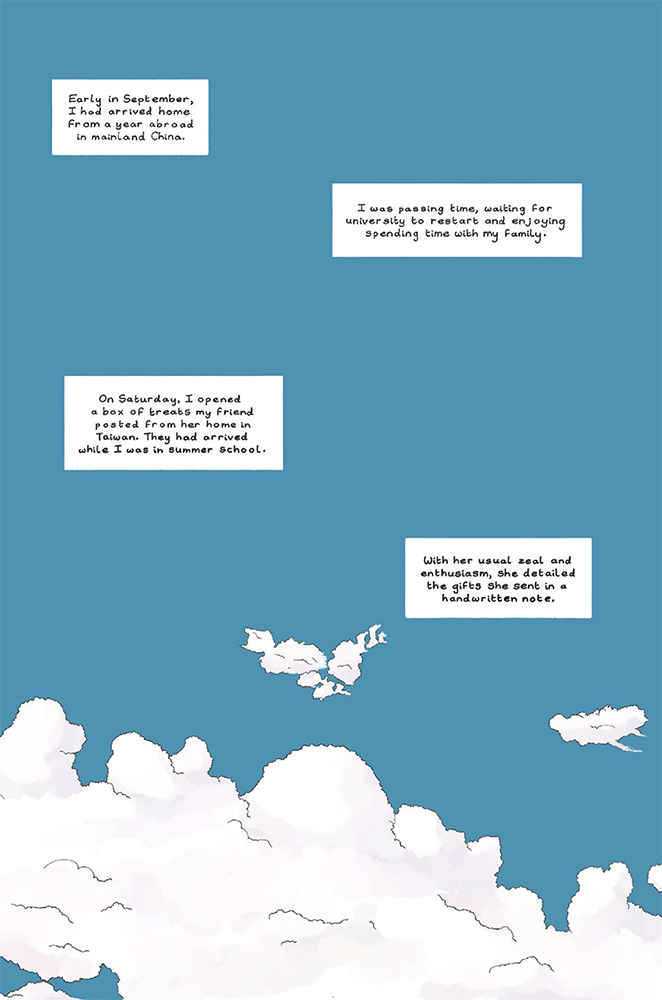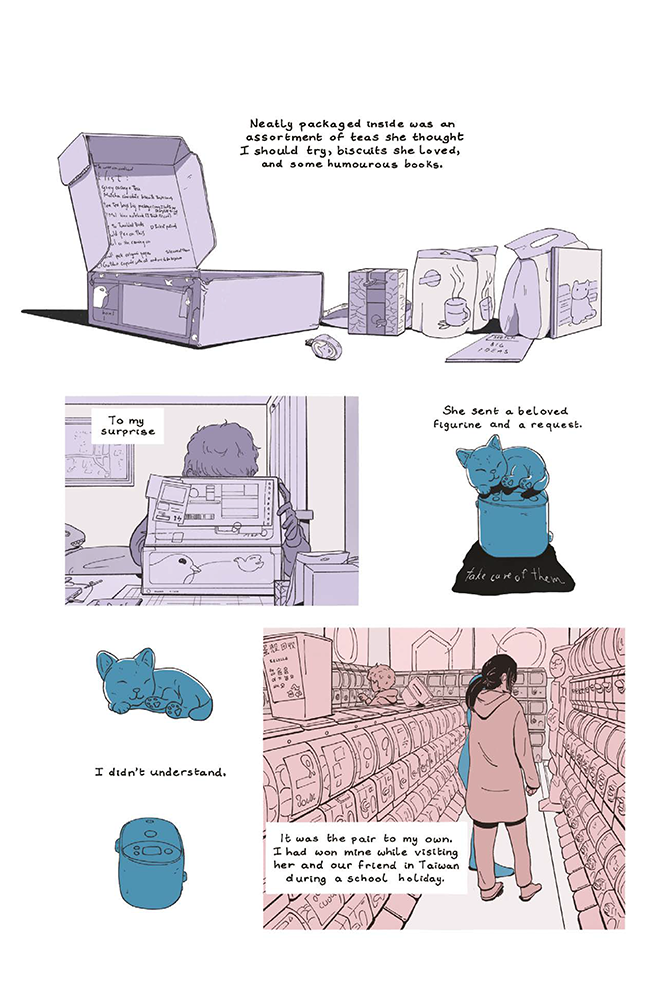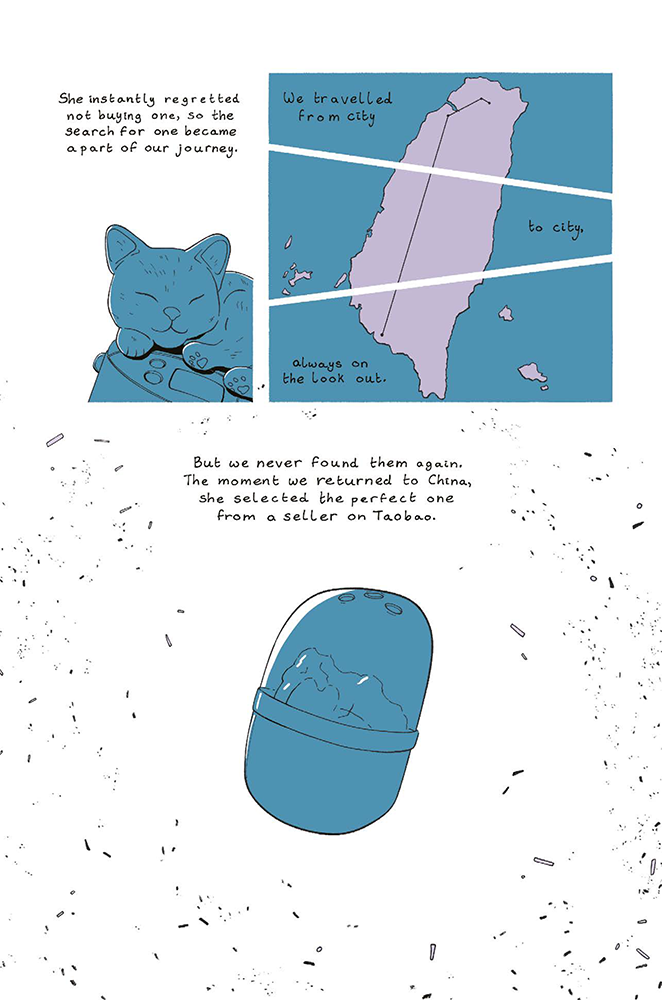Using Your Experience To Create Worlds - A Think Piece.
Writing about your own experience can involve a series of choices that are often made unconsciously. They will be different for every person, every story, and every situation. As an artist, the decisions I make change significantly for every story I write and draw.
No human (or algorithm) is capable of generating every possible circumstance and every possible iteration of decisions that can, and will, be made before the Sun subsumes the Earth, but there are a few decisions I find worthy of considering when writing about personal events, be that a longform piece or something as simple as a Tweet.
The first is to write at all.
As an example, I’ll focus on my upcoming graphic novel Without Ceremony, which came about after the passing of one of my closest friends.



The decision to write about it came from feeling at sea amongst those I knew at that time. Amidst the grief, it felt as though no one who was there shared in the riptide that would pull me out from the moment and swallow me into its depths, leaving me unable to stop myself from crying in a manner that seemed random to those unfamiliar with its horizons. I could not fathom if I was truly isolated beneath the crushing weight, or if I was simply unable to see the others around me.
There is no shame in grief. It is something that we will all come to know intimately the longer we walk this Earth and learn to associate the things we enjoy with the ones that we love, but it is easy to feel alone within it.
In this grief, the memory of a heated discussion full of teasing and laughter in an international friend group about whose country’s curry was the best often comes to mind. It was a conversation that jumped between discussion of recipes, spices, pride, imperialism, travel, authenticity and whether curry cubes counted as being curry. Choosing to take time to enjoy the company of the found family that surrounds you is an indulgence that should be lathered on whenever possible, like how my friend taught me a mark of a good restaurant is not seeing the white of the rice, only the colour of the sauce. The memory comes untethered every time I hold a box of Golden Curry in my hand and drags me back to that messy kitchenette, many years ago.
But tell me, how do you explain to your very confused and startled date stood next to you in Tesco why you’re crying over the box of apple and honey curry stock cubes in your hands when you’ve been trying to look cool all day? Surely the curry can’t be that spicy, can it?
For me, that answer came in a form I had almost shielded away from in despair – writing a comic.
In choosing to write about your own experience, the second question to grapple with comes in a hotly debated topic across almost all modern media over the past few years for both better and worse – authenticity.
Choosing what to share can be difficult. Life is full of details and anecdotes that can be considered plot critical to one person and peripheral to another, even those that were involved in the very same interaction. How do you choose what to keep and what to exclude? Is it more authentic to brush over some details as one does in daily life, or would an external viewer consider that to be depriving them of a story, or ‘representation’?
This is one battle that almost every writer who experiences any form of systematic and societal marginalisation in their life must grapple with in some form of another. There are countless details that did not make it to the pages of Without Ceremony that shaped both events and individuals involved with it.
For example, you would not know that the book has a very queer ‘cast’. As a long-time out lesbian, like many other queers, I often find that through intangible means I meet and form majority queer friend groups without ever intending to. The sun rises, the tides will turn, and queers stick to each other like Styrofoam balls to a cat’s statically charged fur.
But this isn’t in the book because I decided it was irrelevant. When I was choosing what to write about, especially as a writer who has several marginalising factors in their life, an active decision had to be made about whether to write as a writer who is marginalised, or a marginalised writer. Neither answer is more correct than the other. Neither choice has more or less authenticity to it. Everything exists with equal importance, and nothing is relevant to every situation; humans are complicated and confusing beings.
As egotistical as it may seem (and may be, a folly of all memoirists without exception) I decided to remove that detail amongst others because it bloated the story I wanted to tell. Without Ceremony is a story that is authentic to my experience of my life and my grief, but it is my interpretation of that sequence of events without telling the story of others who were involved. What is cut and what remains is a part of my individual process of crafting a story out of a linear chain of events, putting reason and logic to circumstances that often had none in the moment.
That is the decision to write, and to write authentically.
The final decision is to share the story at all.
This is something we all must face in one way or another, in interacting with the outside world we experience the opinions and responses of others, an experience immortalised as ‘the mortifying ordeal of being known’. https://archive.nytimes.com/opinionator.blogs.nytimes.com/2013/06/15/i-know-what-you-think-of-me/
Originally, I had planned to only write and draw Without Ceremony for myself and myself alone; I didn’t want to share it with anybody. It was an approach I had heard of online for dealing with difficult circumstances and considered useful in a therapeutic manner. No longer able to speak with them, writing the story felt like the only way I could spend time with my friend again. Going through photographs, texts, entries in my diary, or simply remembering the time we spent together was the only way I could connect, even if that was through tears.
If I had continued down that route, I might have finished the story, or I may not have. I am yet to meet an artist of any medium that does not perch upon a mountain of unshared works in progress or ‘when I have time, I’ll…’ of one format or another. There is nothing inherently wrong with that, even the most productive of artists runs up against the boundaries of time and their own limitations as a human being.
At some point during the writing process, the decision not to share, changed. I decided that I was going to create it as a webcomic. I began to format it for vertical scrolling, something that felt unnatural to me, but I wanted to create as quickly as I possibly could to throw into the yawning void of content that are the dominant webcomic platforms. The decision to share came out of the slow forming contradictory knowledge that if I felt alone as I did in this, there was almost certainly someone else who felt the same and if my comic helped just one person, it would be worthwhile.
Somewhere around that time, I ran into Comics Youth. I showed some of the thumbnails I had drafted for the then-scrolling webcomic format and from there the story in its present form came into being. It switched back to its present paginated format, my preferred way of engaging with comics.
I know that Without Ceremony would not be what it is today without the Marginal Development Programme. It almost certainly wouldn’t be something that I would be able to share in a physical format with others, or on this scale, and for that I am grateful. The team has helped and encouraged me shape the story into something that is far higher quality and supported it over the years it has taken me to draw it, which was far longer than I had imagined! Sharing the story with people within Comics Youth has helped me get better at being able to talk about what happened and more importantly, to share some of the joy surrounding the friendship that existed beyond the narrative of grief alone.
Yet I still have some concerns about sharing Without Ceremony. Although I gained permission from my friend’s parents, I’ll never know what my friend’s thoughts on the matter would be, given their firecracker personality. Their story was their own to tell, which is why I decided to focus on my own.
The other major concern is more self-focused. In creating Without Ceremony and having contributed to Marginal Publishing’s Mind Over Margins anthology, I felt a growing concern arising from deep within of accidentally typecasting myself into a specific genre. Though there are many advantages in being prolific within a subject matter or area, for marginalised writers there runs a risk of being restricted to a singular ‘palatable’ topic.
Think of how many people read an article like ‘Why you shouldn’t touch my hair’ by a Black woman but won’t pick up a sci-fi novella by the same writer, will share the ‘What is Passover?’ article by a Jewish writer but overlook their noir short stories, or pay lip service to the ‘Why X character is bad schizophrenic representation’ discussion by a schizophrenic blogger but would ignore their baking blog or recipe book.
This concern is not unique to myself and is one I have seen uttered in asides by many writers and artists who live marginalised lives. Until the narrative shifts to one of acceptance of the whole rather than alienation and examination of the Other, it is not one that can be overcome by artists ourselves. All we can do is continue to create, and perhaps in that creation, to continue to share. And so, I shall. I hope you consider doing the same.
Although it has been difficult, I’m glad that I decided to share this story with my friends, with Comics Youth, and hopefully with you too. At its very core, Without Ceremony was created as a way of spending time with my friend and enjoying their company for just a little while longer. The journey of its creation has been long, longer now than our cut-short friendship. I hope that you can read Without Ceremony and perhaps for a brief moment, feel the joy of sitting around that table and spend just a little bit of time with us, surrounded by friends.